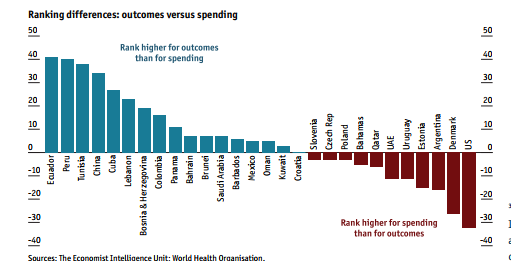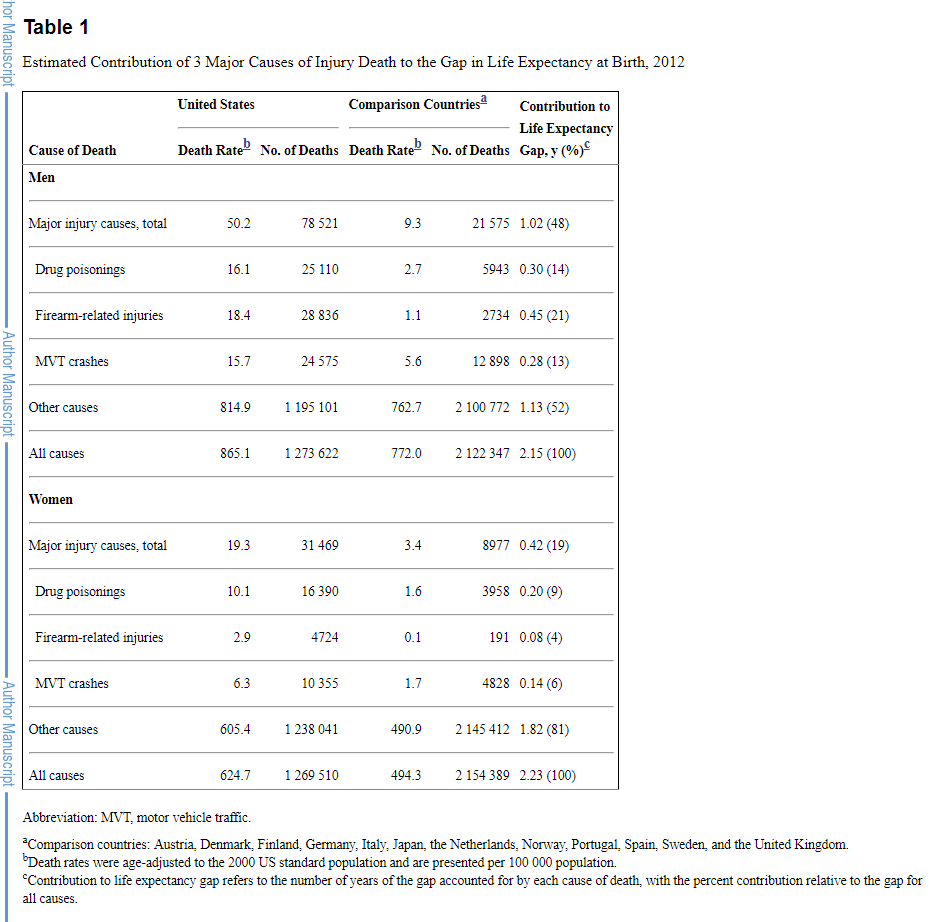I don't like this type of hostility that goes nowhere. But this feels like the pot calling the kettle black
May be acceptable to you. But it's neither fiscally responsible nor good at having people receive necessary care. Because of inefficiency, which, mind you, isn't just the result of consumer choice as you make it seem, tons of people end up uninsured, underinsured, or in financial ruin. To ignore those peoples' plight because of some abstract affinity to consumer choice seems like a purely ideological stance which you feel strongly about and thus refuse to accept its empirically demonstrable human cost.
This is nonsense, and universal coverage does not imply in any way a specific framework of malpractice law. It's also worth noting that the net effect of inefficiency is the same, healthcare resources wasted and people receiving substandard or no healthcare at all. The
result of inefficiency matters, not the causes. You're making some odd mental gymnastics here about what sources of inefficiency matter or don't matter and completely losing sight that it has negative consequences regardless of where its coming from. Because these consequences are real regardless of the source, we want to minimize them wherever we can to reduce this cost. This is something that countries with universal coverage do much better than us on average.
You're thinking outside of the constraints of logic, I'll hand you that
I think you're still unfamiliar with what is meant by "outcomes." The reason these employ measures like Disability-Adjusted Life Years is that we generally agree that people entering healthcare want 1. Not to be disabled 2. To not die prematurely. I don't think there's a lot of customers anywhere who disagree with those outcomes being good.
It's not about caring about the micro or the macro level of healthcare, it's about recognizing the macro level of healthcare is the sum of patient experiences, and when the macro level looks ugly so does the micro level. To use an analogy, there's no such thing as a dirty car that's actually clean when you look at it closely.
If this happens you can always go to a private hospital, you know those aren't illegal in most countries with universal coverage, right?
Also, the situation you describe is MUCH more common in the U.S., not because people have insurances that deny coverage for certain things (which does happen nonetheless) but because 11 percent of our population fell through the cracks and is in no sort of waitlist or expecting a procedure. Again, you're missing the forest for the trees.
How was my framework misleading? Slightly over a tenth of those 330,000,000 people aren't making healthcare decisions or are making undesirable healthcare decisions because they have no coverage and no framework determined by nobody, aside from costly ER visits of course. The cost, which is human suffering, is real even if you don't care or want to pretend it's not there.
There's no such thing as an "efficiency-outcome" government healthcare system. Efficiency and outcomes are two measures (the latter dependent on the former) of healthcare system performance. And, you keep missing the forest for the trees. We have more years of healthy lives lost here than in the aforementioned counterparts, so on average there are a lot more stories of undelivered or underdelivered care on this side of the pond and on this side of the 49th parallel.
You''re giving away how little exposure you've had to national health systems, this is seldom if ever a response in a hospital of any kind. Sure, some expensive treatments are foregone for their cheaper alternatives. Now go and ask your insurance to cover any of the meds on the non-covered list, which as far as I'm aware just about every coverage plan has. And yes, you can pay for it on your own. That's no different from other countries, the only difference is, of course, that the American pills and procedures come out on a disproportionately expensive bill.


This is my last response to you in this thread. As just about everyone here has pointed out, you're very vaguely familiar at best with measurements of health performance and their significance and healthcare systems. You've taken up enough time from people here speaking in rhetoric and logical missteps so that we could all arrive to your underlying conclusion: "USA is best country in the world." I'm sorry, but bumper sticker slogans don't necessarily match the nuances and vicissitudes of the real world, and loving America doesn't mean defending present political or economic arrangements, nor has it ever been so. I hope you pause and think about these concepts and what they mean at the "macro" level you invoke and the amount of human suffering one system or another elicits.
Best of luck









